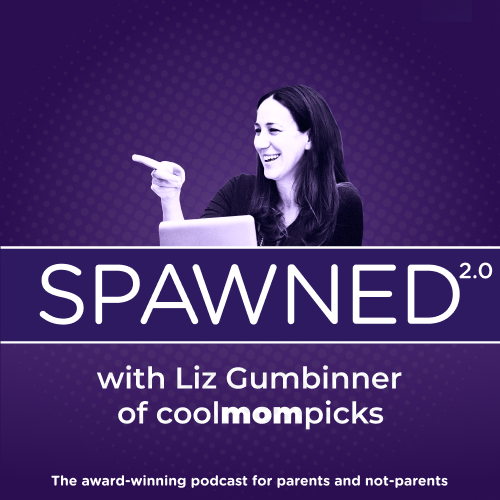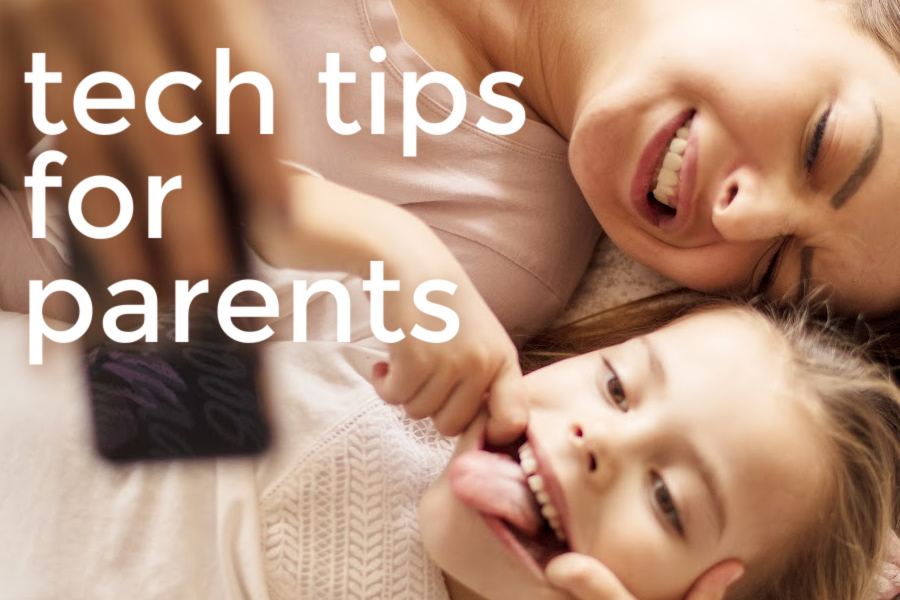Another day, another mass shooting. And I’m not being flip. This week it’s the unfathomably awful shooting at Robb Roy Elementary in Uvalde Texas. Just last week it was a supermarket in Buffalo, New York. This just adds to the already unconscionable list of mass shootings in the Christchurch, New Zealand mosques, plus Las Vegas, Orlando, Parkland, Sandy Hook, Nice, London, Boston, Pittsburgh…and soon it will be somewhere else.
Whether it’s an international terrorist attack, a domestic terrorist attack or hate crime targeting innocent people in schools or places of worship or nightclubs, every new tragic incident is one too many. Too many stories, too much senseless death, too many times our beautiful, wide-eyed children look up at us and ask, “but why?”
I do know this: children understand love easily. What they don’t understand is hate. Or why this keeps happening; why our elected officials don’t just “do something.”
It’s brutal to have to explain.
And so we continue to share the best resources to help other parents know how to talk to our children about mass shootings, bombings, and other difficult tragedies — because they just keep coming.
Top photo: Kelly Sikkema
In this article you’ll find:
- Tips for taking care of yourself first
- Tips for talking to kids
- Finding the helpers and being one yourself
- Expert resources and websites to help parents talk to kids about shooting and other tragedies
This article has been adapted and updated in 2022
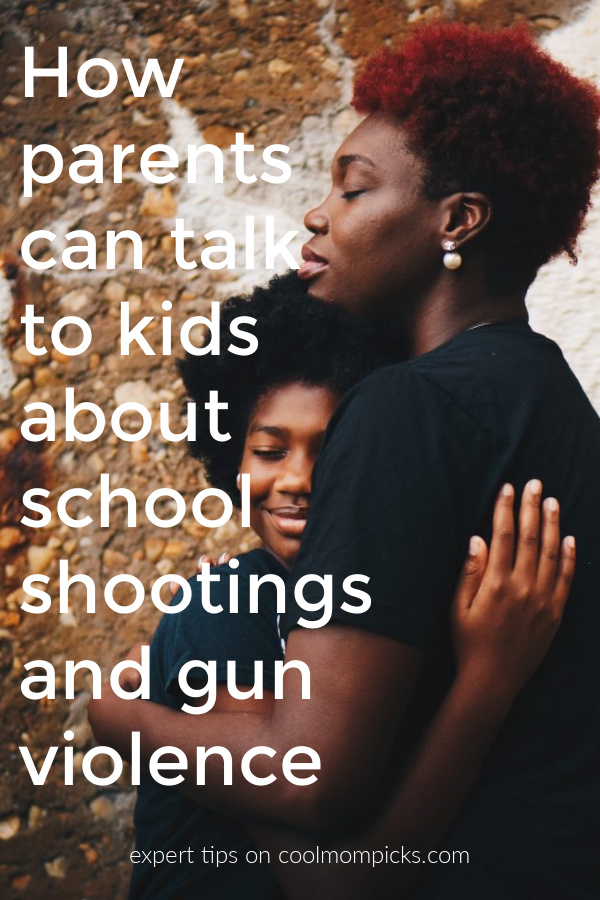
Photo: Eye for Ebony via Unsplash
A few tips for taking care of yourself, first
Heard that analogy about putting on your own oxygen mask first? It’s a good one. You have to take care of yourself!
So the advice I’ve always appreciated in these times is that yes, it’s okay to turn off the news and get off social media. Self-preservation is not the same as ignorance so don’t feel guilty if you need to go out and inhale your weight in carbs or bake a pie or sit in a park or walk around a museum or watch an old comedy.
Also remember that with the 24/7 news cycle, there’s generally no “new” news every minute; it’s just the same images interspersed with (often wrong) speculation to keep viewers tuning in, and it can be numbingly addictive while offering no real benefit.
Feel free to turn to one of our favorite meditation apps to force you to spend a little quiet time just breathing, if nothing else. I’m a huge fan of the Calm app, and in particular the Calming Anxiety body scan meditations that can be as short as 3 minutes.
I find that also doing something keeps me from feeling helpless and despondent — and it helps our older kids and teens, too. Write or call your congressional representative about addressing the issue at hand, whether it’s the crisis of unnecessary gun violence or something else.
A few tips for talking to kids, next
We don’t want to make mistakes as parents, we want to know just how much we tell our kids and to have the exact perfect words every time. We’ll stumble, of course, but we can try.
So I ask myself: What do they need to know? Which facts do we explain while omitting others? Do we shield them from the horrors of the world and watch cartoons and keep the news off? What about kids on social media? If we avoid the subject, do we risk their friends or teachers talking to them before we do?
So my biggest tip about talking to your kids about tragedies like mass shootings, is to ask them questions first (So, what do you know?) and let their own knowledge guide how you discuss hard events. Also, provide as few details as you need to answer the questions in age-appropriate ways.
If you don’t know the answers by the way, it’s okay to say so. Buy yourself some time, and check the resources we list below to help guide you.
Related: How to talk to your kids about prejudice with the help of 12 of our favorite books
Limit media, or at least some kinds of media. I also suggest — and this is new for a lot of us now that we have digital tweens and teens — that if there are violent or traumatizing videos widely circulating on social media, considering drawing a line and telling your kids not to look at those videos. If a friend says, “you have to see this!” it’s okay for them to say “no, I’m good.”
Turning off auto-play videos on social networks is good general safety tip as well.
– On FB: Settings >Videos>Auto-Play Videos>Off.
– On Twitter: Settings and Privacy>Data Usage>Video Autoplay>Never
–Tiktok, Instagram, and YouTube of course do not want you to skip videos. However on YouTube you can find the small slider with the “play” icon on a video > click to disable autoplay (On mobile, toggle off from the video itself)
But that’s really just a starting point.
Finding the helpers and being one yourself
Doing something helps me. Every single time. And it helps kids too.
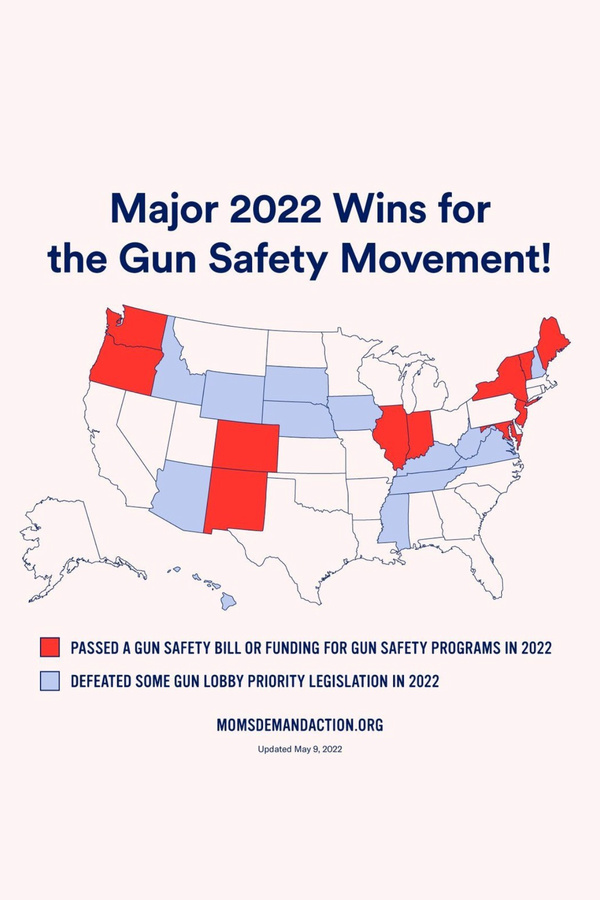
Via @momsdemand on Instagram
Givie kids hope with some data. My teens have told me that they feel this “new normal” (all they’ve really known in their lives, honestly) is inescapable. What’s helped is to point them toward an activist org like Moms Demand, and show them a detailed list of wins and success for the gun safety movement. When they see that there is some progress being made, it’s both reassuring and motivating for them to become part of the solution — and may even inspire an action plan on their part.
You can also make a donation to a related cause or a medical aid service, or just read up on some of the most impactful organizations helping to prevent unnecessary gun violence so that you keep hope alive that there are people working every day to help make meaningful change. And remember, one donation is great — but you can make your donations go even further by automating monthly giving, if only a few dollars a month.
Use social media to amplify if you have older kids and teens on social media, let them know that their platform can be a source for change. They can share helpful posts they’ve found (not just dark memes, though that is healthy in its own way), reassuring commentary, calls to action, or even start their own. I’ve told my kids that they never know who is reading — who knows, they could reach one kid who grows up to work in congress and makes this their top issue. Or…maybe your kid will grow up to be that person.
Expert resources and websites to help parents talk to kids about shootings and other tragedies
Sometimes we need extra help. I know I do. So I’ve looked around the web over the years, and found some other outstanding resources to provide even more vetted, expert information to help you out, all depending on the age and needs of your own kids.
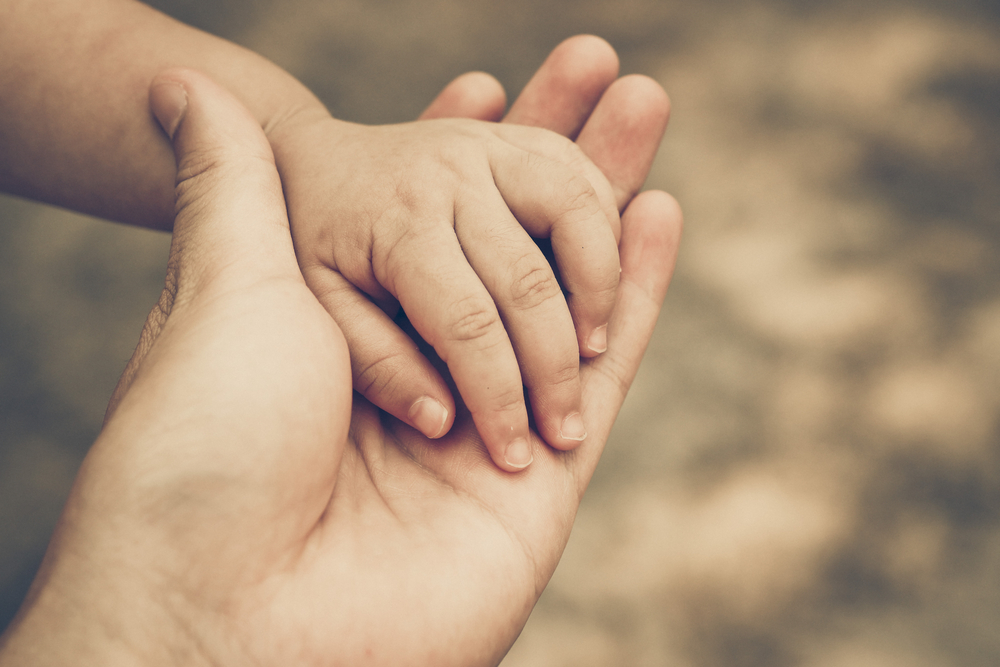
What I’ve discovered, interestingly, is that while there are lots and lots of truly helpful organizations in the world, especially when it comes to mental health issues, they don’t necessarily offer the best online resources.
Some of their articles are too clinical or institutional, and some hardly scratch the surface of the tough questions we have as parents.
So after spending a lot of time online (no doubt in an attempt to redirect my own feelings of sorrow into something more productive and positive) here are the websites and articles I think offer the most clear, comprehensive, and valuable information to me personally. In fact, they’ve helped me start talking to my own kids about violent tragedies in the most appropriate way I can muster.
I really hope they help some of you too.
(Oh…and while you’re here, we have posted so many well-considered articles featuring expert-based tips over the years to help parents talk to kids about all kinds of topics, and you can find some truly well-curated, smart articles right here where you are. So I hope you’ll consider Cool Mom Picks and in particular our Facebook page, a helpful resource as well.)
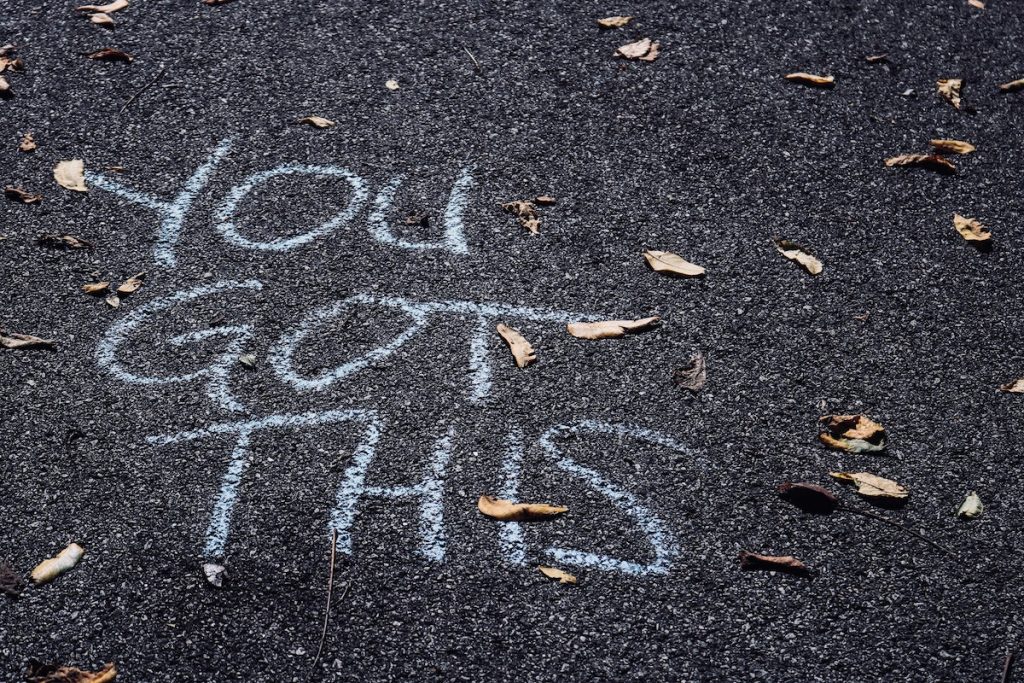 Photo: sydney Rae via Unsplash
Photo: sydney Rae via Unsplash
PBS Parents
It surprised me, but after some research, PBS Parents is the first place I’d visit. Grace Hwang Lynch penned an excellent, comprehensive article about talking to kids about bad news [ web cache] plus there are quick tips from Dr. Eric Rasmussen about helping kids cope with scary stories.They help you identify what kids understand about the news at various stages, like how a preschooler may confuse reality and imagination.
I also like the advice to avoid watching the same images repeatedly; children during 9/11 literally thought the buildings were falling over and over again. School age kids, however, can process the difference between what’s happening in their worlds versus the world at large and can understand the news in a more mature way and that will impact the kinds of conversations you have.
My favorite tip from the article: Consider tuning into the radio (I’m always a fan of NPR’s coverage) instead of TV so that kids can get the story without potentially traumatizing imagery.
National Child Traumatic Stress Network
An absolutely outstanding series of resources comes from the National Child Traumatic Stress Network (NCTSN) website which provides wonderfully helpful, accessible lists for parents and caregivers that are specific to bombings and other tragedies involving mass violence.
You can download their charts of gun shooting resources which detail various reactions by age (including teens and college students), appropriate responses, and then specific things you can do or say to help your kids.
Especially take a look at the PDFs with tips for parents of school age children after disasters and tips for helping youth after the recent shooting in Texas. You find parents very specific things you can say to your kids in response to their questions and behaviors. Like, “I know your friends have said more disasters are coming, but right now we are in a safe place.” Or “When scary things happen, people have strong feelings like being mad at everyone or being very sad. Would you like to sit here with a blanket until you’re feeling better?”
I find that incredibly helpful, especially when knowing the right thing to say to our kids is one of the biggest challenges for parents at these times.
Another good resource, particularly in the wake of shootings like the recent Buffalo tragedy, the Christchurch mosques and Pittsburgh’s Tree of Life Synagogue, is the tip sheet on talking to children about hate crimes and anti-semitism.
The Mayo Clinic
The Mayo Clinic offers a few good pages on helping kids to cope with tragedy and the clear, concise advice is broken down into simple bullet points.
The essence of their advice is that you tell truth, focus on basics, and skip details that probably aren’t necessary.
I really like the tip not to speculate about what might (or might not) happen tomorrow or in the future, since we really don’t know. I also like the reminder that it’s important to spend some extra time together — so cuddle up and watch a fun movie, read a book together, play a board game. It’s probably good for you, too.
When we’re struggling on a tough day, my kids and I have been known to go out to grab ice cream, and eat it before dinner. That works pretty well.
The American Association of Pediatrics
The AAP has a thorough, if a bit clinical, assessment of promoting adjustment and helping kids cope after disaster and crisis from medical perspective. You’ll find advice like like identifying adjustment difficulties, and providing psychological first aid if needed.
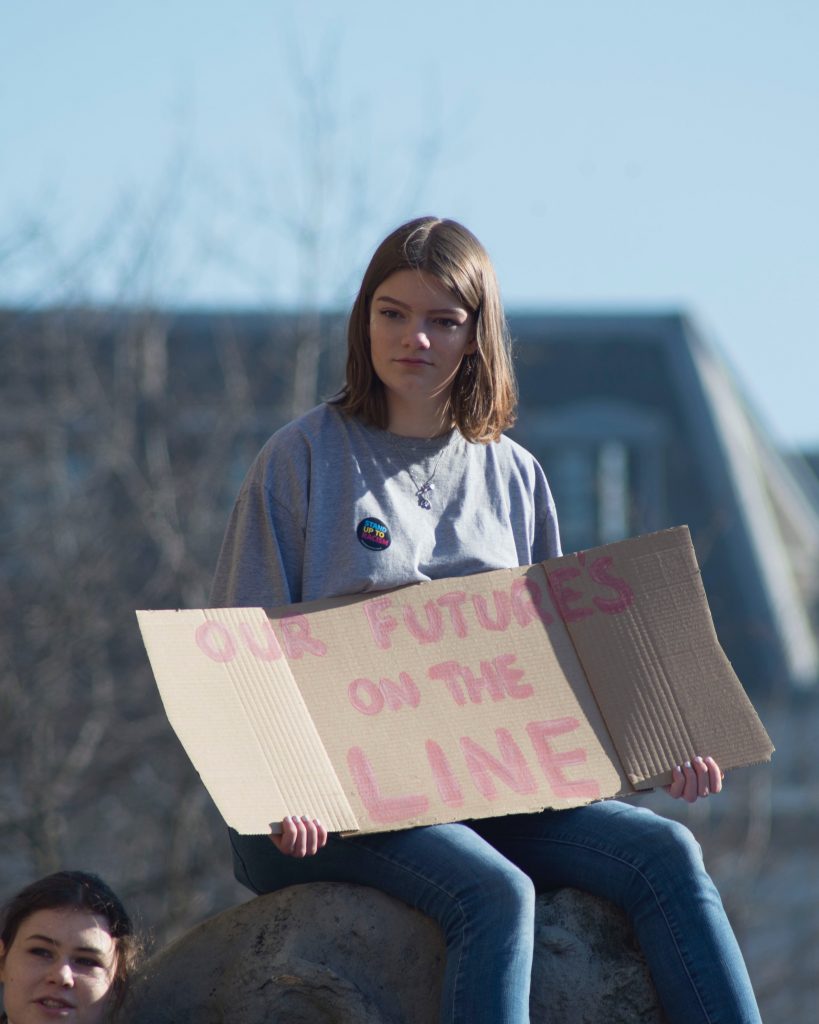 Photo: Josh Barwick via Unsplash
Photo: Josh Barwick via Unsplash
The Children’s Hospital of Los Angeles
The AAP pointed me here and I found a ton of resources for parents in the aftermath of a shooting or other tragedy in the news. While it’s somewhat geared toward educators, you can find resources both to provide help now, and to help you prepare (unfortunately) for other tragic incidents. Depending how close the situation is to home, you may also investigate the Coalition to Support Grieving Students, which is doing some impressive work; this is also geared toward school personnel and focuses more on tragedies that can happen personally to students, or to school communities, however, I think there’s some good, applicable info that parents can use under many circumstances. For example: Tips on what not to say to your kids.
Just know the info is presented in video form, so you might watch with headphones or when kids aren’t in the room.
The Substance Abuse and National Mental Health Service Administration
The website of the SAMHSA is one I wasn’t familiar with until recently. It offers a lot of solid info particularly pertaining to people in psychological distress after a tragic event or crisis. A lot of it focuses on natural disasters, but there is a page on getting help after an incident of mass violence and it includes a link to some very helpful, concise info from the American Psychological Association.
The National Center for School Crisis and Bereavement
I learned about the NCSCB, part of the USC School of Social Work, through an interview with its director David Schonfeld, in an issue of a Boston University (my alma mater) newsletter. The site is helpful, and provides links to some of the organizations I’ve already listed here. However this quote of Schonfeld’s really resonated with me so I wanted to include it here:
I often hear adults say they don’t want to talk about an event because they might upset the children. I point out, “No, you’re not making them upset; they are already thinking about it. If you ask them how they are doing and they cry, you’re not upsetting the child—you are just giving them permission to show the upset.”
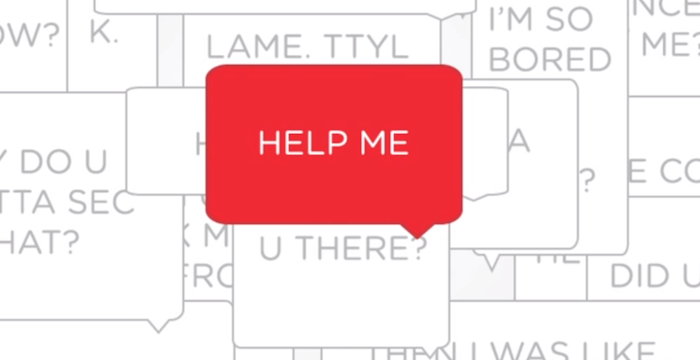
Hotlines offering help for parents, too
If you need someone to talk to, or are battling your own stress, anxiety or PTSD symptoms, you need to get yourself healthy too.
You can always call the SAMHSA’s own disaster distress hotline at 1-800-985-5990 or text TalkWithUs to 66746 to connect with a trained crisis counselor.
You can also text START to 741-741 to live text with a trained specialist at the Crisis Text Line who will respond quickly, and help keep you safe and healthy with referrals if you need it.
And the National Suicide Prevention Lifeline is NOT just about suicide; if you’re having anxiety or depression, call 1-800-273-TALK any time to connect with a trained counsellor at a crisis center who can also refer you to mental health services in your area should you need it.
There is no stigma here whatsoever. There’s no weakness in feeling depressed or anxious and asking for help yourself. It simply makes you human. Please remember that you can’t help your kids unless you’re okay too.







